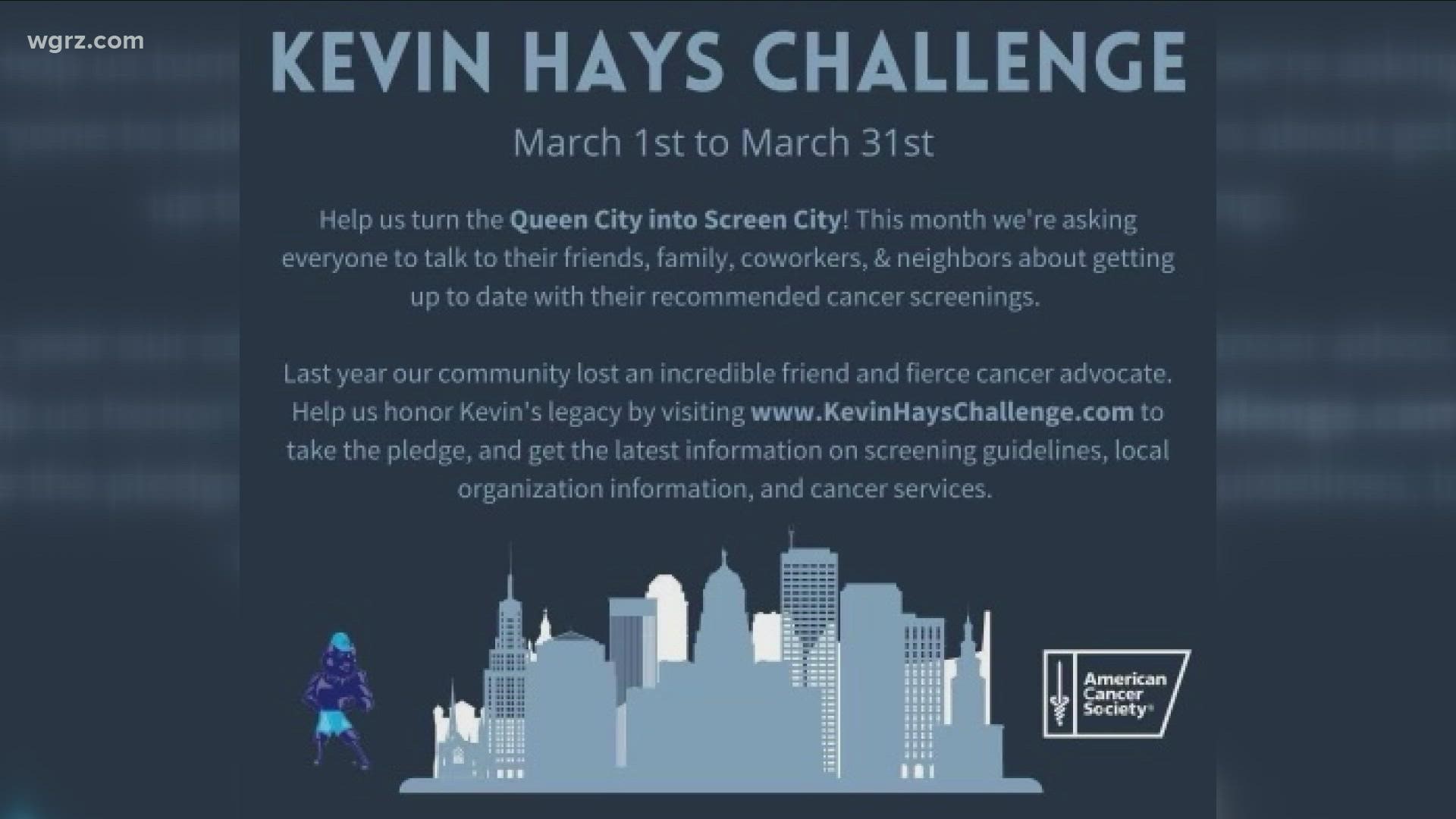BUFFALO, N.Y. — There's a new push to boost cancer screenings in the Buffalo area and beyond, and it's named after a Western New York man who was a fierce advocate for early detection and colon cancer awareness.
The Kevin Hays Challenge is spreading on social media. It's simple and free — just talk your family, friends, and co-workers about getting up to date on their cancer screenings.
Hays, a husband and father of three, was first diagnosed with colon cancer at 28 and died last October at age 36.
Throughout his cancer battle, Hays worked to raise awareness and get people talking about a sometimes uncomfortable topic. He was especially passionate about educating younger people about their risk and reminding them that colorectal cancer isn't an "old man's disease" like some people incorrectly assume.
"That is something Kevin said all the time, is that you're never too young. It is affecting more women now than previously," said Dylyn Harrison, development manager for the American Cancer Society in Western New York. "I think that's one of our biggest challenges is kind of changing that conversation. We as the American Cancer Society are trying to push and really honing that in that it's not just someone my dad's age who is going to have colorectal cancer."
March is Colorectal Cancer Awareness month, but the challenge encourages people to get their recommended screenings for all types of cancer.
Colonoscopies are the gold standard for colorectal cancer detection, but there are other testing options, such as a a FIT kit, which is an at-home screening test for adults ages 45-75. The Erie County Department of Health is teaming up with Tops Markets to distribute FIT kits for Colorectal Cancer Awareness Month.
The recommended age for colorectal cancer screenings is now 45, but sooner if you have a family history or are showing symptoms. The previous screening age was 50.
Colorectal cancer incidence and death rates are increasing in the young-onset population even though it's going down in those over 50.
Between 2009 and 2013, colorectal cancer rates decreased by 4.6% per year in individuals 65 and older and by 1.4% in people aged 50 to 64, according to the American Cancer Society. They increased by 1.6% in those under age 50.
It's still unknown exactly why more young people are being diagnosed — and research is currently being done — but the risk of disease is attributed, in part, to smoking, alcohol use, living a sedentary lifestyle, and obesity.
"I know it's uncomfortable. Nobody wants to talk about their butts and colonoscopies, but what Kevin would say is, 'What's really difficult is cancer.' You have to get uncomfortable. You have to get those tests because you know what's worse? Chemo. Treatments and your family going through this horrible thing, you can prevent that," said Harrison.

